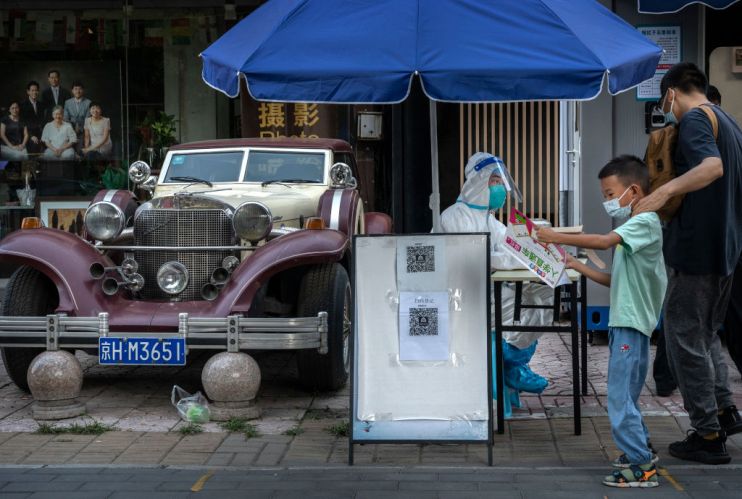China economy wilts under weight of ‘zero Covid’ restrictions and soft demand

Strict adherence to blunt restrictions on daily life to deal with Covid-19 outbreaks is sending a chill through the Chinese economy, a raft of data released today showed.
Beijing’s blanket lockdowns across some of the country’s economic powerhouses, including Shanghai, one of the world’s top trade hubs, are weighing on output.
Retail sales growth in the world’s second largest economy cooled to 2.7 per cent last month annually, down from 3.1 per cent and a huge miss from the consensus of 4.9 per cent jump.
While “zero Covid” measures have hit household spending, experts said softer demand could be more of a structural problem in China.
“A renewed surge of Covid cases and tightening of zero-Covid restrictions likely played a part, but we think weak underlying demand is the main problem,” Craig Botham, chief China+ economist at Pantheon Macroeconomics, said.
“Domestic demand is doing terribly, and continues to receive little-to-no support from policymakers. Retail sales will slow further in August,” he added.
A weaker Chinese economy adds to the list of headwinds hitting rich western countries.
China is a huge consumer of commodities, meaning a reduction in demand is likely to squeeze big industrial firms listed in London, such as miners Rio Tinto and Glencore.
Beijing is also hoovering up cheap Russian energy supplies that have been shunned by western nations in response to President Putin’s invasion of Ukraine, pulling demand away from western commodity giants.
Industrials were among the worst performers on the FTSE 100 today.
Chinese property prices slid 0.11 per cent over the last month, driven by prospective homeowners scrapping purchases over fears properties will not be complete for months. Analysts had expected a 0.1 per cent rise.
Chinese homeowners last month stopped paying developers due to their properties being partly complete.
Uncertainty over whether homebuyers will fulfill monthly payments has weighed on real estate investment, choking overall fixed asset spending, which slowed to 5.7 per cent growth, again, below the consensus.
“We should not expect real estate to return as a source of growth any time soon, and no policy changes appear to be on the horizon that might turn this around,” Botham added.
China’s central bank unexpectedly slashed its key interest rate 10 basis points to support the economy. However, the move was announced before the string of soft data.